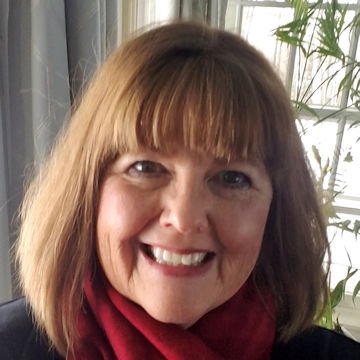Bills would update end of life law, add Alzheimer’s support
April 14, 2022 | By Rep. Theresa Wood Most of the time between now and the end of the legislative session in mid-May is spent working on bills passed to the House from the Senate. In House Human Services, we have been working on several bills, including S.74 updates to the bill known as “patient choice at end of life,” and S.206 which is a bill related to planning and support for individuals and families impacted by Alzheimer’s disease and related disorders.
Alzheimer’s disease is estimated to impact more than 6 million people in the United States. In Vermont, we have resources provided by the Alzheimer’s Association and the Department of Disabilities, Aging and Independent Living. However, despite Vermont’s population being one of the oldest in the country, we have done insufficient planning for services and supports for individuals and families impacted by this disease.
This bill (S.206) makes changes to the make-up of the Commission on Alzheimer’s Disease and Related Conditions, as well as requires the state to fully integrate planning for supports and services into its State Plan on Aging.
In the House, we are considering changes to the Senate bill that would either plan for or implement a “silver alert” system. Such a system would be similar to the “Amber Alert” system that enacts public outreach when a child is missing, but would be for older Vermonters experiencing cognitive issues due to age or disability.
Updates to medical aid in dying law
Act 39 is Vermont’s medical aid in dying law which was passed in 2013. The bill currently under consideration, S.74, would make three changes to the law.
First a little background on the current law. Vermonters who have a terminal illness and who are mentally capable of decision-making, can request medical assistance to die with medication. A person must be within six months of their end of life and be able to administer the medication themselves. There are strict qualifications to participate and an eight-step process.
The current law and the proposed modifications seek to balance patient rights and medical protections. Since 2013, records show that 116 individuals have gone through the process of requesting medication to end their lives at the time and place they choose. In the last two years, 29 people have gone through the steps to acquire the medication, but only 17 of those individuals ultimately used it. The remaining individuals chose not to use it or ultimately died from their condition before being able to use the medication.
When the original legislation was drafted, there were many concerns that the process would be misused. None of those concerns have materialized, but through experience, some changes are being recommended to assist critically ill individuals at the end of their life. Three changes are proposed in S.74: the use of telemedicine, explicit immunity for pharmacists, and removing a two-day delay at the end of the process.
The bill allows for the individual’s two oral requests for medication to be done by video telemedicine. This, however, can only happen after a physician has confirmed the diagnosis with a physical examination. Testimony revealed that at the very end of life, it can be extremely difficult to physically appear at the doctor’s office. Also, the use of telemedicine has been widely used during the pandemic and has become more accepted by physicians and patients.
The second change fixes what was an oversight in the original bill – namely, the original law specifically provided for immunity for physicians writing a prescription but not for pharmacists. S.74 makes this correction.
The third change removes the 48-hour waiting period between the last physician appointment and when a prescription can be written and filled. While two days may not seem an unduly long period of time, at the end of life it can mean an extraordinarily difficult time for the person and their family. There is already a 15-day waiting period that needs to occur between the first and second oral requests by the individual. A terminally ill individual’s condition could deteriorate very quickly during another delay to where they no longer end up with the choice they are seeking.
This process is entirely voluntary, and it is incumbent upon the physician to confirm that there is no coercion or other influences at play. Currently, a very small number of Vermont physicians assist individuals through this process and only one pharmacy participates. And as noted above, very few people have availed themselves of this process.
These changes, while small when compared to the initial bill, may make the end of life on this Earth more peaceful for the few who will use this process.
State Rep. Theresa Wood, D-Waterbury, along with Rep. Tom Stevens represents the Washington-Chittenden House District covering Waterbury, Bolton, Huntington and Buel’s Gore. Emails: twood@leg.state.vt.us and tstevens@leg.state.vt.us

